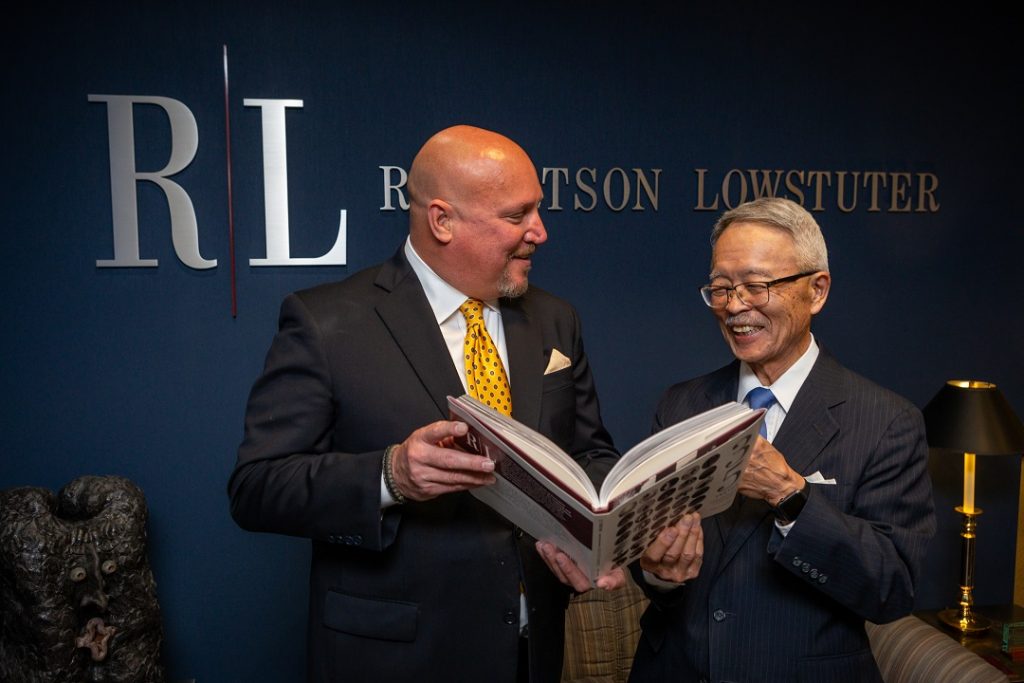
Here at R|L we are savoring the last few weeks of summer. It’s not too late for a great read. Here are our coaches’ top picks for business books. Hope you will enjoy them.

Clyde Lowstuter:
How to Think Like Leonardo da Vinci by Michael J. Gelb
I have always believed that the most interesting and successful people are insatiably curious about diverse topics and da Vinci is at the pinnacle of highly innovative living. In Michael J. Gelb’s fascinating book, I am captivated by the breath and depth of da Vinci’s observations. Gelb has done a masterful job unpacking da Vinci’s mental process into actionable steps that I have used over the years to help me think more innovatively. It’s a compelling read with life changing perspectives. Enjoy the ride.

Carolyn Lowstuter:
Dare to Lead by Brené Brown
Brené Brown’s book is a pragmatic approach to leadership, which she describes as not about having power over people, but rather drawing the power out of people. As a coach I search for new tools to help coax the potential out of my clients. It has been my experience that effective leaders are effective role models. They step into that vulnerable place of tough conversations with empathy and courage. Dare to Lead is a book I often refer to my clients.

Bert Allen:
The Purpose Path, A Guide to Pursuing Your Authentic Life’s Work by Nicholas Pearce
Nicholas Pearce is an award-winning management and organizations professor at the Kellogg School of Management, CEO of a global executive advisory firm, and an Assistant Pastor of Chicago’s Apostolic Church of God. The Purpose Path invites readers to align their daily work with their life’s calling, by charting a path to purpose organized around five key questions:
1. What is success?
2. Who am I?
3. Why am I here?
4. Am I running the right race?
5. Am I running the race well?

Mike Cannizzaro:
The Only Way To Win by Jim Loehr
Jim Loehr’s premise: building character drives higher achievement and greater fulfillment in business and in life. He argues that it really isn’t about what you achieve, it’s about what you become as a consequence of the chase. He taught me, “character is above all else,” especially for leaders of organizations.

Dave Dallam:
The Discipline of Market Leaders by Michael Treacy and Fred Wiersema
Published in 1995, the authors submit that companies build competitive advantage in only three ways: Product Leadership, Operational Effectiveness, and Customer Intimacy. While this original work proposes that companies excel by focusing in one of these dimensions, the past 25 years have proven that the best companies today, and into the future, find ways to establish their brand in multiple dimensions, but still limited to these three. Apple may present the best example of today’s multi-dimensionality. Nevertheless, this is the groundbreaking work that defined the definition of building competitive advantage through a corporate value proposition.

John Hart (Bio coming soon):
Crucial Conversations: Tools for Talking When Stakes are High by Al Switzler, Joseph Grenny, and Ron McMillan
This book discusses how to handle disagreements and high-stakes communication. It is written on the premise that when you are stuck in any situation–whether it’s at home or work–there is a crucial conversation keeping you from accomplishing the desired results. If you can learn to speak up in these crucial moments effectively, then you can accomplish the results you are after. The authors support this idea by referring to people who are considered influential by their peers and managers in their work and relationships. They studied successful communicators over a period of 25 years and concluded that what typically set them apart from the rest of the pack was their ability to deal with crucial conversations. They possess a skill-set that is easy to learn and allows them to face any situation with nearly anybody–no matter power, position, or authority.

Kathryn Hartrick:
Thanks for the Feedback: The Science and Art of Receiving Feedback Well by Douglas Stone and Sheila Heen
The authors have spent the past fifteen years working to determine what helps us learn and what gets in our way with respect to feedback. Offering a simple framework and powerful tools, they help us address random comments, performance evaluations, and unsolicited input with gravitas and curiosity. They offer practical advice that you can use immediately with your direct reports and teams.

Pat Henahan:
Switch: How to Change Things When Change is Hard by Chip and Dan Heath
A very inspiring book full of compelling stories of successful change in various settings that illustrates the psychological propellants (and barriers) of change management. Examples range from world hunger to procurement standardization to personal health. This book has practical implications for us as individuals, business leaders, community leaders, and family members. I also love the other books from the Heath brothers, especially Made to Stick and Decisive.

Ron Hirasawa:
Blink by Malcolm Gladwell
In Blink, the author makes a convincing case for trusting your instincts and unconscious feelings in the blink of an eye – especially reading people and the room. Your instincts and feelings are never in error, although it may take more time to understand why and how you arrived at your viewpoint. From a coaching perspective, it all reinforces the need to watch the behavior of others as much as possible. I call it listening with your eyes.

Pat Mater:
What Got You Here Won’t Get You There by Marshall Goldsmith with Mark Reiter
Successful people have many attributes that have led them to be successful in their careers. This book does not focus on flaws of skill, intelligence, or personality. It deals with the challenges of interpersonal and leadership behaviors that get in the way of long-term success. By identifying these behaviors, and working to overcome them through simple and meaningful steps, people can achieve their aspirations.

Anil Shah:
Working With Emotional Intelligence by Daniel Goleman
Last week I listened to a child psychologist and it made me realize that we do everything to take care of our body and be aware of any health issues, but not so much about our mind and emotions. We tend not to share how we feel emotionally and we keep our emotions bottled up. I think as executive coaches, we should be able to share and have our clients share their issues.

Susan Snowden:
How to Win Friends and Influence People by Dale Carnegie
This is one of the time-tested classic business books, with over 15 million copies sold. If you search online for reviews of this book you will find it is called “one of the most important self-improvement books.” This book focuses on your own development – not only professional development, but personal development. From the dust jacket to the last page of the index, this book provides helpful tips to being more effective starting right now.
What’s Your Favorite Business Book? Let us know in the comments…
Best wishes for your continued success and may you always…
“Create Uncommon Results!”®

Execution. Larry Bossidy and Ram Charan.
Excellent recommendation. Thank you, Jeff!